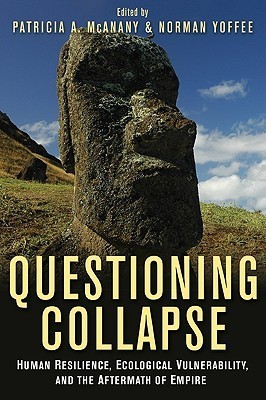What do you think?
Rate this book


390 pages, Hardcover
First published September 28, 2009
"Although most archaeologists do believe, along with Diamond, that we can learn from the past, we do not think that the past was the same as the present in key aspects. We are all certainly alarmed that environmental mismanagement in the present is a clear and evident danger to life on earth. What we can learn from the past is thus the more striking: ancient kings and governments, which did not ruin their environments on a massive scale and didn’t have the power to do so, are no models for the present. Rather, the present situation is dire precisely because there is no clear precedent for global environmental mismanagement." - Norman Yoffee
"I wonder each time I visit the flooded golf courses and melting asphalt surrounding the Ivory Towers of the southwestern mega-universities how Indigenous peoples, who cultivated fields, rotated crops, and developed drought - and disease - resistant strains of corn for at least a thousand years in a desert, are now the locus classicus of willful environmental mismanagement. In Collapse, Diamond merely relays the well-worn tradition among many Southwestern archaeologists of explaining the abandonment of just about every archaeological site as the consequence of environmental mismanagement or warfare resulting from environmental mismanagement. It seems that before the accident of European conquest, Native Americans chose to abuse either the environment, or each other, and this set the table for conquest, colonization, poverty, and the 'vanished' (or invisible) Indian." - Michael Wilcox